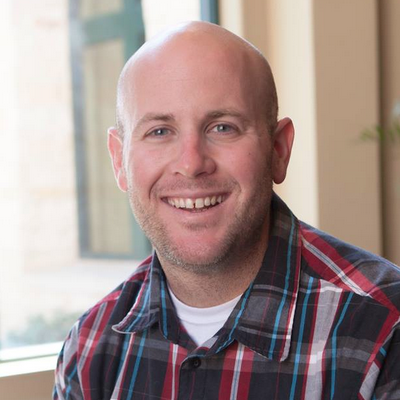by David Hanson | Apr 10, 2015 | On the Job, The Youth Ministry Blog
James (not his real name) is a core student of mine who I’ve been trying to meet with for a couple of months. We have a weekly routine. I text him and ask if he can get together this week. He replies with one reason or another why he’s too busy to meet. Wash, rinse, repeat. James and I have a great relationship. He’s not avoiding me to, he’s just busy.

On this surface, this is a classic example of a teenager who isn’t committed. Youth workers LOVE to complain about the busyness of teens these days. We talk about how sports, school activities and a lack of priorities is eroding the faith of teens. It’s easy to blame these external factors because it shifts the focus off of ourselves.
All this complaining leads me to think that we’ve unintentionally equated church attendance with spiritual maturity. We live by the axiom “Mature teens are in youth group more than non-mature teens.” We do this because it’s easy to measure and it makes logical sense. After all, God did create us for community and the church is the way God has chosen to work in the world. The problem is that this assumption subtly changes our job description. We go from being a shepherd who pursues students to a salesman who must convince kids to come. Success is defined as spiritual brand loyalty where teens are repeat customers. I can influence these kinds of results, but ultimately, they are out of my control.
So let’s put you back in the driver’s seat and focus on a success profile that you CAN control.
I’d like to suggest that you and your leaders’ commitment to students is more important than your student’s commitment to your youth group.
Instead of convincing students to show up at your stuff, why don’t you spend your energy showing up at theirs?
In the awesome book Creating a Lead Small Culture, the Orange folks talk about challenging leaders to show up predictably, mentally and randomly in students’ lives. The emphasis is leaders going to their students instead of expecting them to come to us.
This isn’t a new revelation but a reminder of a timeless truth. Jesus didn’t wait for us to come to his Trinity party. Nope. He packed up his stuff and moved into our neighborhood. That’s why he compared himself to the Shepherd who left the many to pursue the one sheep who had gone astray. (Luke 15:1-7)
Pursuing students will generally result in students who are more consistent. When our leadership team did the research for our students we found that the students we pursued more were the ones who showed up more. I never said our team was brilliant. It just confirms what I already understand. I am a pastor, not a salesman. I cannot convince someone into the kingdom, but I can reflect Jesus’ unrelenting love for us. When we as youth workers understand this we can pursue teens with joy instead of guilt.
I may not be successful at getting James to come hang out with me, but I am successful at pursuing James. I believe that means a lot to him. He know that each week I am pursuing him in the name of Jesus and that is going to stick with him long after he graduates. So next week, I’ll send out that text and that will be my success story. What will be yours?
[guestpost]
Kevin Libick is a Middle School Pastor living in Fort Worth, TX with his wife Kara and her two cats. He is a novice banjo picker and expert Hawaiian food eater. Kevin loves to connect with other youth workers and equip them to live out their calling in God’s Kingdom. Kevin loves to connect with and empower youth workers. Connect with Kevin on Twitter: @kevinlibick
[/guestpost]
by David Hanson | Feb 12, 2015 | On the Job, The Youth Ministry Blog
Middle schoolers are real people. I know that may shock some readers, but it’s true. I’ve actually heard grown adults call middle schoolers “pre-people”. Besides being incredibly demeaning, it implies that young teens aren’t dealing with real life issues yet. Part of this stems from the difficulty middle schoolers have with communicating what’s going on underneath the surface.

I thought I would let you into my world to show you that middle schoolers are facing really difficult situations. Over the past month I’ve become aware of a number of issues that middle schoolers I know are dealing with right now.
Homosexuality – We have a student who just came out to the world via social media. They stopped coming to our group a few weeks ago just before it became public. Our leadership team is figuring out how to show the love of Christ while helping them find their true identity in Jesus.
Self-Harm – I know of multiple students, from great families by the way, who are expressing their emotional struggles by harming themselves. We are walking with the parents to reinforce constructive ways of dealing with their emotions and bringing hope through the Gospel.
Drugs/alcohol – I have students who get offered marijuana EVERY single day at school. Other students have been caught sneaking alcohol at a friends house. One teacher from a local middle school tells me all the time that a handful of students regularly show up to class drunk. Our students are self-medicating to escape and they have access to whatever substance they want.
Pornography – Most teens are exposed to pornography in the middle school years and addiction is common. In addition, I know of students who have consumed pornography that is violent in nature. My heart breaks for those who’s view of sexuality is so distorted.
Family roles – There are students who have to play the parent role for their families because mom or dad can’t or won’t act like the grown-up. They live in a dual world where schools treat them like kids and yet they have to perform as adults at home.
I could really go on and on. The point is this. Your middle schoolers are hurting NOW. They are facing real life NOW. The more you understand this the less satisfied you’ll be with playing babysitter. Middle schoolers need adults who will shine the light of Christ into the convoluted, dark, broken world they are living in every single day.
It all starts with listening. Start asking probing questions to your middle schoolers and listen for the subtle and not-so-subtle clues that show you that there is more going on. After all, young teens are real people, too.
[guestpost]
Kevin Libick is a Middle School Pastor living in Fort Worth, TX with his wife Kara and her two cats. He is a novice banjo picker and expert Hawaiian food eater. Kevin loves to connect with other youth workers and equip them to live out their calling in God’s Kingdom. Kevin loves to connect with and empower youth workers. Connect with Kevin on Twitter: @kevinlibick
[/guestpost]

by David Hanson | Dec 15, 2014 | On the Job, The Youth Ministry Blog
The word legacy gets thrown around a lot these days. We’re very concerned with leaving our mark on history. Even in ministry we want to make sure that we will be remembered for what we’ve done for the kingdom.
Our digital world means that we can quantify our social impact by literally counting our friends, those who like us, and the reach of our writing through tweets and blogs. I fear that we have become obsessed with making a greater name for ourselves. We think that because we CAN be known by everyone, we SHOULD be known by everyone.
Do a thought experiment for me: how many youth ministry people can you name? Is it 20, 30, 50, 100? According to an informal twitter poll, the estimates are between 30,000 and 40,000. So out of that many you can only name 50. Now, how many youth pastors from the ’90’s can you name? I can name like 10. The further back you go, the less we remember. Out of every century there are only a handful of Christian leaders’ who’s names will live beyond their lifetimes.
The point is this. Unless you are one of the few people who truly change the direction of the church, your name is heading for anonymity. A few generations after you are gone you’ll be most likely forgotten. This is your legacy. Far from being depressing news, this should free you!
The history of the Church is populated with names of people you’ve never heard of. They were faithful men and women who worked to advance the kingdom and pass off the faith to the next generation. Hebrews 11 describes them like this…
35 they were tortured, refusing to turn from God in order to be set free. They placed their hope in a better life after the resurrection. 36 Some were jeered at, and their backs were cut open with whips. Others were chained in prisons. 37 Some died by stoning, some were sawed in half, and others were killed with the sword. Some went about wearing skins of sheep and goats, destitute and oppressed and mistreated. 38 They were too good for this world, wandering over deserts and mountains, hiding in caves and holes in the ground. (Hebrews 11:35-38 NLT, emphasis mine)
Even John, the voice in the desert, proclaimed. “He must increase. I must decrease.” (John3:30).
Without these brothers and sisters, the church would not exist. The church exists precisely because generally these people cared more about promoting the name of Jesus than their own name.
I’m aware of the irony that I’m promoting this post on a blog. This is not a rant against anyone with a blog, twitter account or podcast. It’s not a shot at those who do have social media clout. If anything, it’s a lament that I have spent too much of my time worrying if anyone will remember me as a great youth pastor. That’s time that I could have spent serving and loving others in the name of Jesus without expecting anything in return.
Trying to make a name for yourself is a losing proposition. You’ll end up hating others or hating yourself. Your students won’t get the best of you and your family won’t either because you’ll be too busy building your brand.
If you struggle with this like I do, here are some questions to ask yourself when you share, post, tweet, and write:
- Will I be disappointed if I don’t get credit/praise for this?
- Am I trying to catch the eye of someone of influence?
- Is there a number of responses that I’m looking for to feel validated?
- Is this more about promoting me than blessing others?
Join the rest of Christendom and dare to be anonymous. We must decrease and HE must increase.
[guestpost]
Kevin Libick is a Middle School Pastor living in Fort Worth, TX with his wife Kara and her two cats. He is a novice banjo picker and expert Hawaiian food eater. Kevin loves to connect with other youth workers and equip them to live out their calling in God’s Kingdom. Kevin loves to connect with and empower youth workers. Connect with Kevin on Twitter: @kevinlibick
[/guestpost]
by David Hanson | Sep 17, 2014 | The Youth Ministry Blog
Hard conversations. Every ministry leader has at least one that they need to have soon. It could be that you have to say no to someone important at your church. You might have tell a leader to step down. There may be a person in your life who you need to confront about their sin or confess your own. Some people find it easy to have these conversations. I am not one of those people. My tendency is to avoid having them and suffer silently on my own.
Joseph Grenny defines a crucial (hard) conversation as “A discussion between two or more people where (1) stakes are high, (2) opinions vary, and (3) emotions run strong.” *
This summer it seems that I have had to have more than the usual number of tough conversations with students, parents, and co-workers. God has been challenging me to stand courageously as I open my mouth. It’s honestly been one of the most challenging seasons in ministry. But through it all, God is teaching me that through these tough conversations there is blessing. I’ve also learned a few lessons along the way.
Lesson # 1 – Having the conversation is better than avoiding it.
If you hate conflict like me, then you avoid conflict because you fear the worst possible outcome will actually happen. The reality is that avoiding the conversation will NOT solve your problem. The relational tension will still be there and your issue will not be solved until you sit down and have the conversation. The longer you avoid the conversation the more the problem will intensify when the issue finally does come to a head. If you have that hard conversation, the worse might happen. If you avoid it the worst possible outcome will happen.
Lesson # 2 – Believe the best in the other person.
When we have an emotionally charged conversation coming our way it’s easy to paint that person in the worse possible light. We start to believe that they have completely impure motives while you have completely pure ones. This is almost never true. You will never be able to get inside someone else’s mind and truly know their heart. Make the conversation about issues, not motives. When you believe the best in someone else you allow them the opportunity to surprise you with their flexibility and reasonableness. You also allow yourself to see things from their perspective.
Lesson # 3 – Don’t be afraid to be firm on what matters to you.
This is a hard one for me. I want people to like me. I worry that if I stand firm I’ll lose the relationship. Giving in becomes my strategy. If I follow this route I end up resenting myself and that other person because I didn’t fight for what I believe to be important. You can be firm and still communicate that you care about the other person. Standing firm and showing care not mutually exclusive. Most of the time being firm will NOT harm the relationship as long as you affirm the relationship at the same time.
What hard conversation do you need to have this week? Will you prayerfully consider taking a step of courage and have that conversation before it’s too late?
*Want to dive more into how to have hard conversations? Read Crucial Conversations: Tools For Talking When Stakes Are High by Patterson, Grenny, McMillan, and Switzler.
[guestpost]
Kevin Libick is a Middle School Pastor living in Fort Worth, TX with his wife Kara and her two cats. He is a novice banjo picker and expert Hawaiian food eater. Kevin loves to connect with other youth workers and equip them to live out their calling in God’s Kingdom. Kevin loves to connect with and empower youth workers. Connect with Kevin on Twitter: @kevinlibick
[/guestpost]
by David Hanson | Jun 23, 2014 | The Youth Ministry Blog
We’ve all been there. We tell a student to meet us at a certain time. We arrive early just in case. They arrive late just because. There can easily be 30 minutes to an hour of idle time waiting for appointments in ministry.
My first instinct to to pull out my phone and check my social media feeds (but I just did that 10 minutes ago, so nothing really has happened since then). My second instinct is to play a game on my phone. I tend to lean toward quick puzzles.
What if we turned those idle minutes into productive moments? Instead of turning to social media time wastes we could knock a few things off our to do list. Here are a few things I do when I am waiting for a student to show up:
1. Write a blog post! I’m currently writing this on my phone in a mall food court. With note apps it’s really easy to get some writing done.
2. Do some ethnography. In other words people watch. Thanks to Adam Mclane for challenging me to make observations of the people in my community. What do people wear or carry with them? What shopping bags are they carrying? What conversations do you hear? These are all great tools for lesson illustrations and cultural observation.
3. Make some needed phone calls. Is there an event you need to book for? Is there a person who needs a call back? Use your idle time to check these off your list.
4. Read/Memorize scripture. Duh! This is a no brainer. Fill your time by filling your mind with the scripture. It’s one thing we can easily neglect in our busy schedule, but we shouldn’t.
5. Do graphics work. Last October David Hausknecht introduced me to two apps called Over and Phoster. He uses them to make slides and cool Instagram photos.
There you have it. It’s time to make idle time into productive time. My student just showed up so I better get going…
[guestpost]Kevin Libick is a Middle School Pastor living in Fort Worth, TX with his wife Kara and her two cats. He is a novice banjo picker and expert Hawaiian food eater. Kevin loves to connect with other youth workers and equip them to live out their calling in God’s Kingdom. Kevin loves to connect with and empower youth workers. Connect with Kevin on Twitter: @kevinlibick[/guestpost]




